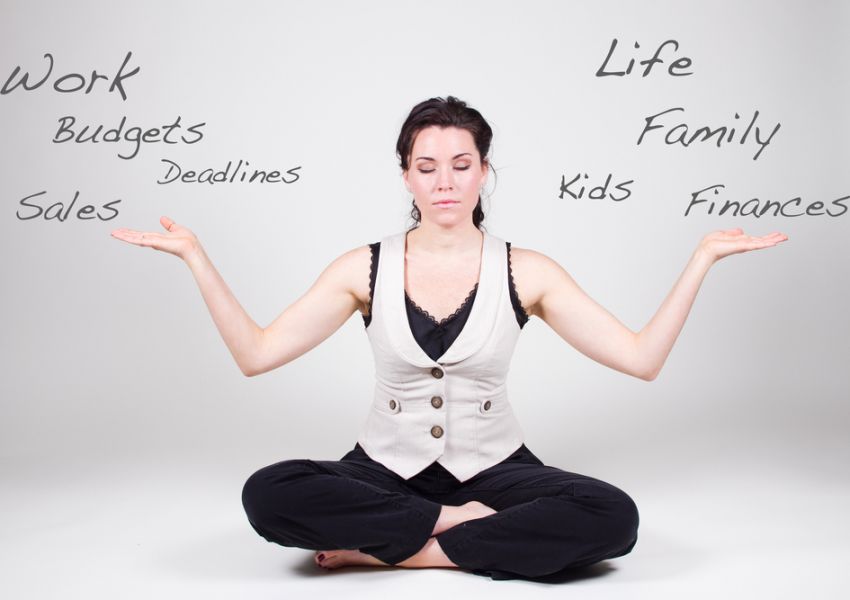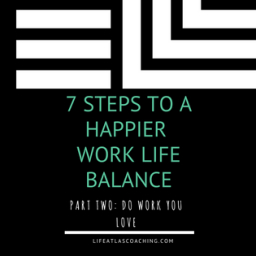
Coaching busy, working women – whether on their businesses, career development or personal circumstances – much of my work involves, to one degree or another, helping my clients find ways to improve their work life balance and create better boundaries between their work and home lives. Some of my clients are feeling overwhelmed and exhausted and recognise they need to change something before their health suffers. Some are feeling a kind of directionless sense of “busy-ness without a cause”, where they put themselves last on the list on every occasion. Others have already been signed off work or left jobs because of stress, and need solutions to help them return, confident they’ve made the changes that mean they will be able to maintain a better work life balance in future.
When people ask me how I define what Work Life Balance is, I always say that I think it’s not so much about how we spend our time, it’s actually about how we feel about how we spend our time. If we are happy with that, then our work-life balance is good, and if we aren’t, then it isn’t.
Sadly, there’s no single magic number or equation we can use that will tell us whether ours is right, it really is just a question of whether we feel happy with how we spend our time, on balance, or not.
Developing and maintaining a good work life balance isn’t necessarily about getting the ideal balance every single day – in fact, trying to make every single day a perfect balance of work and play is probably pretty unrealistic. But over the course of a week, and certainly over the course of a month, you will want to make sure you have time and space for all the things that matter – work, relaxation (even if that’s something quite energetic for you!), sleep, family commitments and home responsibilities, for example.
If you need to make a change to your work life balance, here are five areas to consider, that may help you identify some steps you can take to make improvements:
What could you do to create a bigger separation between work and home? Creating clear boundaries gives you permission to fully focus on one thing at a time, which means you can truly enjoy both work and personal time, one at a time, without any guilt. This is particularly relevant to working parents who often feel emotionally pulled in two directions at once, pretty much 24/7.
You’ll find some tips for creating boundaries between work and home if you work from home in this blog post.
The real key for work life balance is being able to prioritize exactly what you need to prioritize at any given time, across your work and home life. Sometimes you will need or want to put work first and sometimes your family or personal needs will hit the top of the priority list. Being able to choose where to focus your attention when it’s needed, and being able to take responsibility for that, is the ultimate for getting your work life balance in check (and for ditching the famous working mum’s guilt).
To help you achieve this, create, look for or request flexibility in your working pattern whenever you can – and remember this isn’t necessarily the same as working part time!
Part time work makes it easier to fit in time to do things that you want to with your personal life, so at a purely time level will give you more space to achieve balance in your life, but won’t necessarily give you the true flexibility that takes away the headache of being able to juggle things like your child’s needs (appointments, parents evenings, special assemblies, sports day) and your work needs.
If you want to feel better about how you spend your time, then spending more of it on the things that are super-important to you and less of it on things that don’t really matter is often key to unlocking a better balance. But you can only do this if you’re really clear about what matters most to you. We coaches tend to call these your personal “values” and have all sorts of exercises and tools at our fingertips to help you work out yours.

I’ll be honest here: Getting clear about your values can sometimes lead to the realisation that some difficult and potentially large changes may be needed to get the work life balance shift you’re after, and you need to be open to recognising that. You don’t have to make the changes of course, but at least you’ll be able to make a positive decision about the choices you have available to you.
If you have more responsibilities and more to do than you have time for (and these days, who doesn’t?), the tendency can be to focus on productivity: how you can get more done with your time, or take less time to do the things on your to do list.
Instead, try changing your approach and decide what you are going to do less of, or what you are not going to do at all. This is the only way to create genuinely new time – for the things you actually do want or need to do or simply for doing nothing.
If you don’t do less, then eventually the only thing that you’ll be doing less of by default is sleeping…which is no good for your emotional or physical health!
I often introduce a “what not to do” list with my clients, to help them see where they are doing things they don’t really need to, which are really another person’s responsibility or which could be done by someone else.
You may be familiar with Jack Welch’s well known quote:

OK, so we all know he’s right – it’s the choices we make about what we do and how we do them that lead to whatever kind of work life balance we have. We alone are responsible. But let’s be honest here:
Being clear about and living in line with your values can certainly help. It helps by giving you the insight and courage to more easily choose to make big changes if that’s what’s needed for your happiness.
But for many of us, the real root cause of our poor work life balance lies in the (often subconscious) choices we make every day about what we do and how we do them. Maybe you’ll recognise one of these common traits in yourself:
- Finding it difficult to say no to other people in case you upset them
- Always wanting to be in control
- Wanting everything you do or decide to turn out perfectly
- Wanting to appear strong and able to others
- Always wanting to try your very best
One way or another, each of these can lead us to procrastinate (which means things take more time to decide or do than they need to), to take on more than we need (or want) to, to spend more time doing things than is really needed, or to stop us from delegating or asking others for help with things.
These are things that many of us struggle to overcome, but being aware of them and developing strategies to do things differently can lead to big time savings, less stress and better results. A better work life balance.
I’m Jo Lee, the No Stress Success Coach. I coach career professionals and business owners to achieve the personal success they want, to reduce stress and to develop a happy and successful work life balance.
I offer face to face work life balance coaching in Leicestershire, Derbyshire, Staffordshire and Birmingham and telephone or online coaching across the UK. If anything in this blog post resonates with you, and you’d like to find out more about how coaching works or what coaching with me might be like, please get in touch for an informal chat or to arrange a free initial consultation.




